BEE IN
When did plastic become the envelope for our cuisines? We use it to wrap our fresh butter and cheeses, cover chopped fruits and vegetables, store leftover grains and pulses... While some types of plastic silently make their way into our bodies, others suffocate and drown our rivers and lands. With BEE IN’s line of natural, reusable beeswax wraps, Ieva Sulutaura is fighting to reduce our reliance on synthetic storage containers, disposable snack bags and single-use cling film. Thanks to a little help from Latvian honeybees, her products provide sustainable alternatives for almost all things edible.
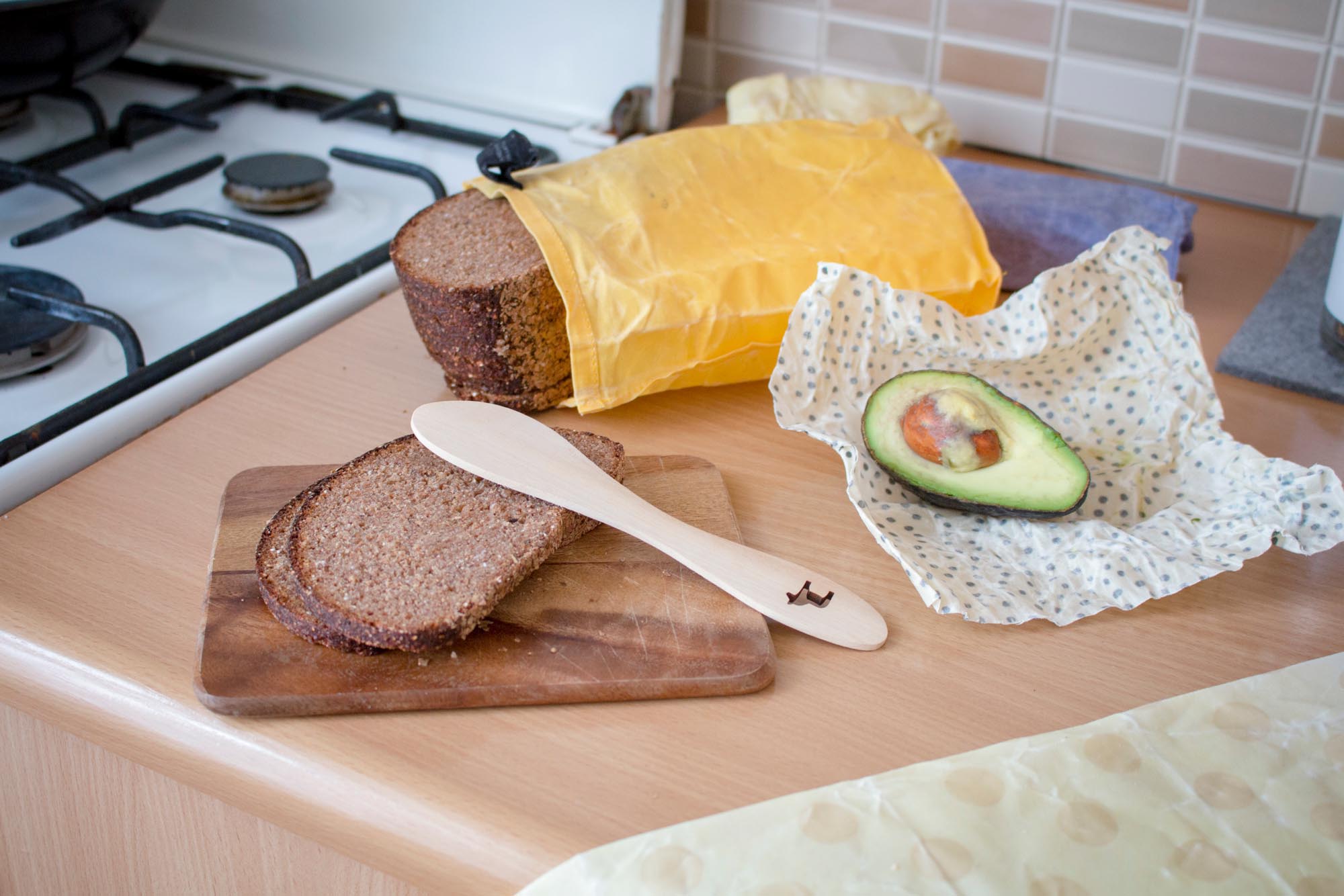
The concept is simple
Pieces of fabric are cut into squares and bathed in beeswax to create waxy, paper-like sheets of material. Flexible, breathable and durable—once dry—they serve as a protective wrapping for everything from bread and cheeses to lemons and avocados. BEE IN’s online store currently features Ieva’s basic beeswax wrap in three different sizes—small, medium and large—all made from organic and biodegradable OEKO-TEX®-certified cotton fabric, printed with non-toxic inks, and coated with locally-sourced natural beeswax. Not too long ago, Ieva expanded her line to include beeswax snack bags as well as fabric-only produce bags. If rinsed regularly with cold water, sheltered from heat and kept away from fish and meats, BEE IN products can last far beyond their 1-year guarantee.
The true ingenuity of BEE IN lies in a substance called propolis, a resinous mixture naturally present in beeswax. Propolis is sometimes also referred to as “bee glue”, as the winged workers commonly use it to build and repair their hives. To produce it, bees combine their saliva with resins won from the buds of the likes of coniferous trees. Propolis is a miraculous natural preservative, and its uses can be traced back to an array of ancient civilisations, such as Ancient Egypt, where it played a key role in the embalming of mummies. Prized by global cosmetics and pharmaceutical industries, modern-day scientists continue to be baffled by its anti-bacterial, anti-viral and anti-fungal properties. Upon studying its effects on foods, propolis reveals its ability to help keep our edibles fresh for astonishingly long periods of time.
Practical and affordable, yet truly remarkable, BEE IN wraps are often ordered in bulk by returning customers who, amazed by its use, want an entire stock for themselves or delightfully give them away as gifts. Each wrap is accompanied by an instructional card and comes in a hand-sewn, brown paper bag. To avoid incurring unnecessary waste for shipping, Ieva salvages discarded cardboard boxes from the other businesses in her building and uses these to send out orders from her online store. For orders of 50 items or more, she offers the service of designing customised BEE IN wraps free of charge—retailers are given the opportunity to brand their very own wraps for their stores; companies can use their logos to create sustainable corporate gifts.
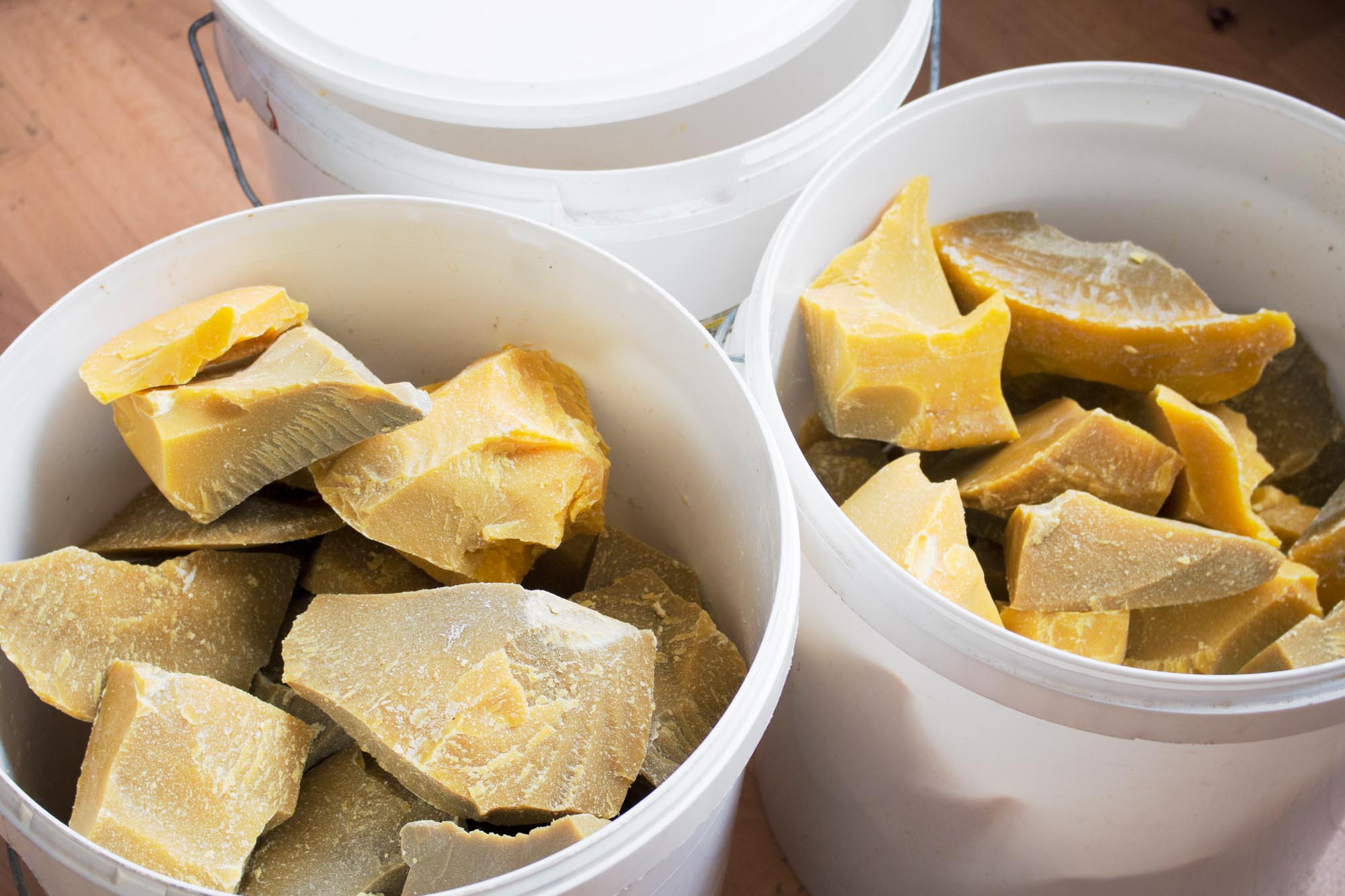
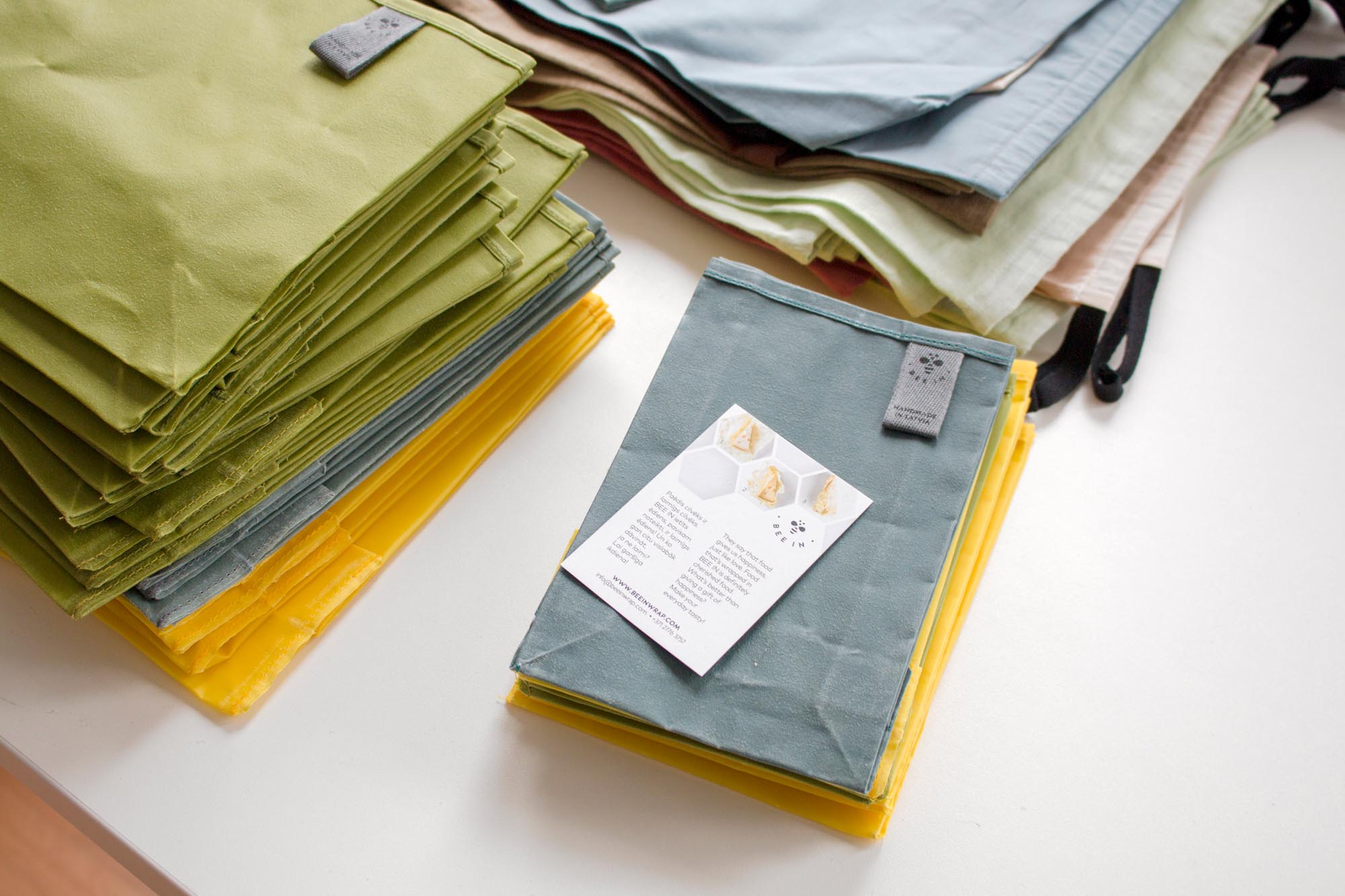
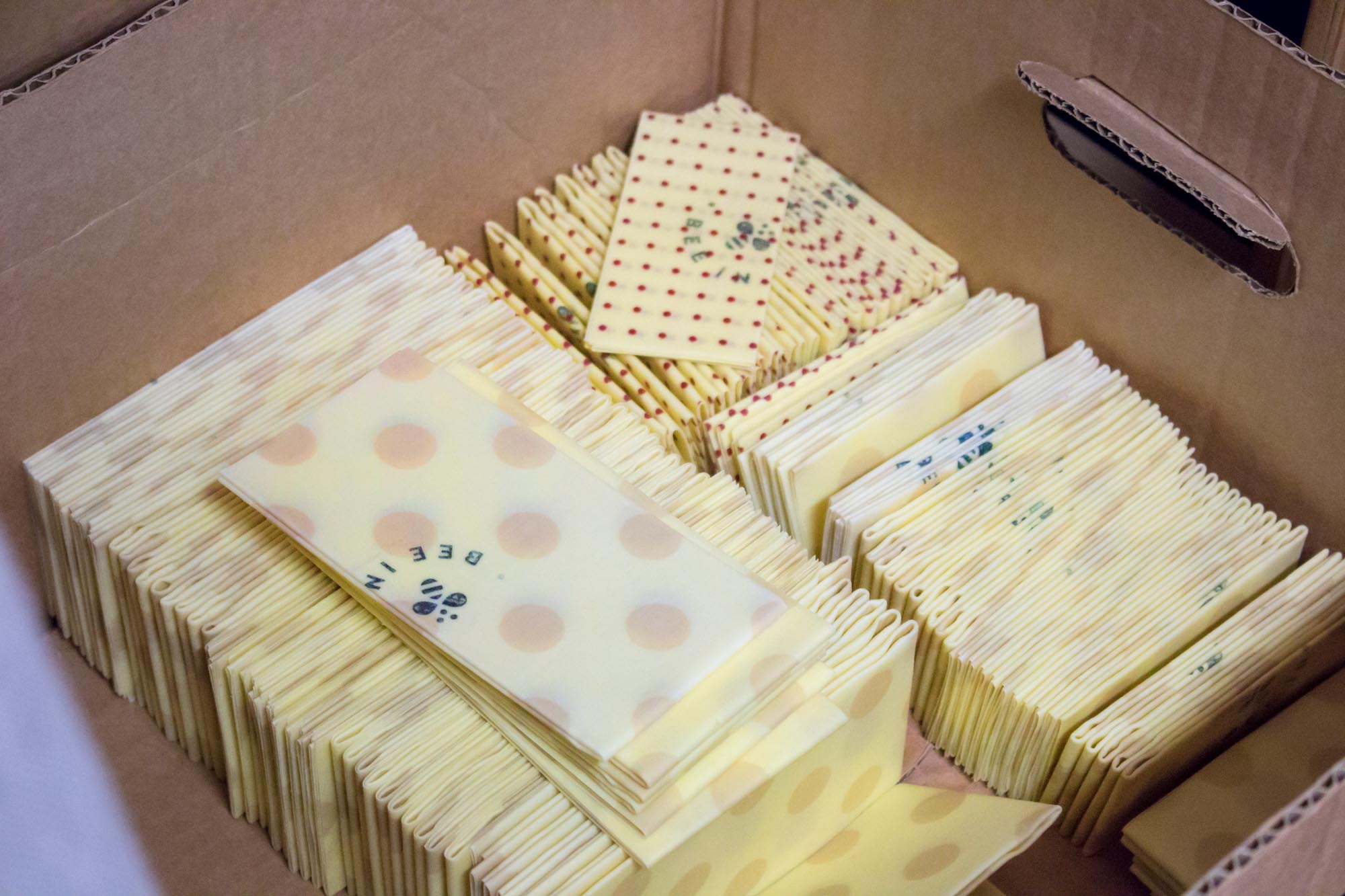
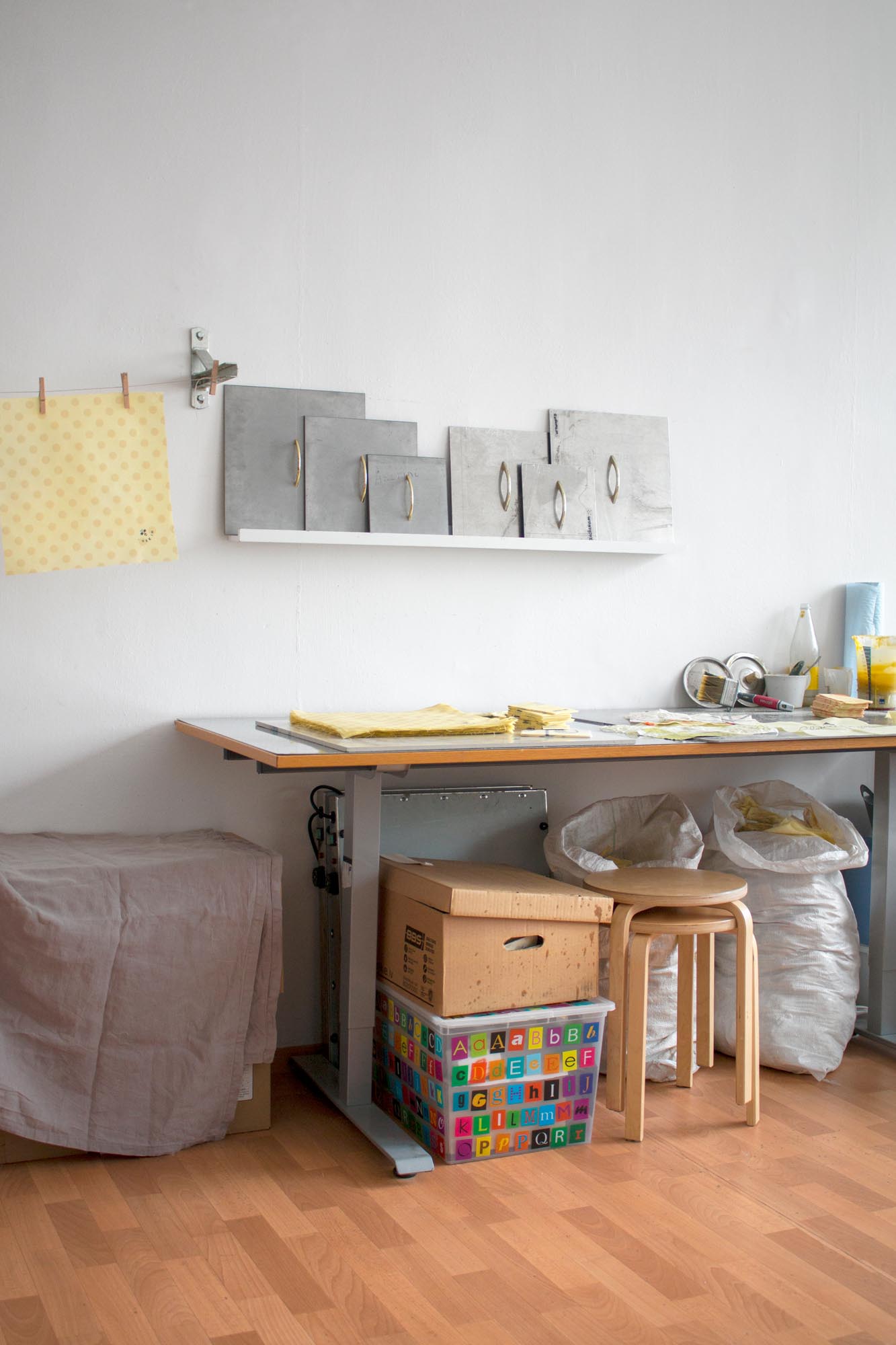
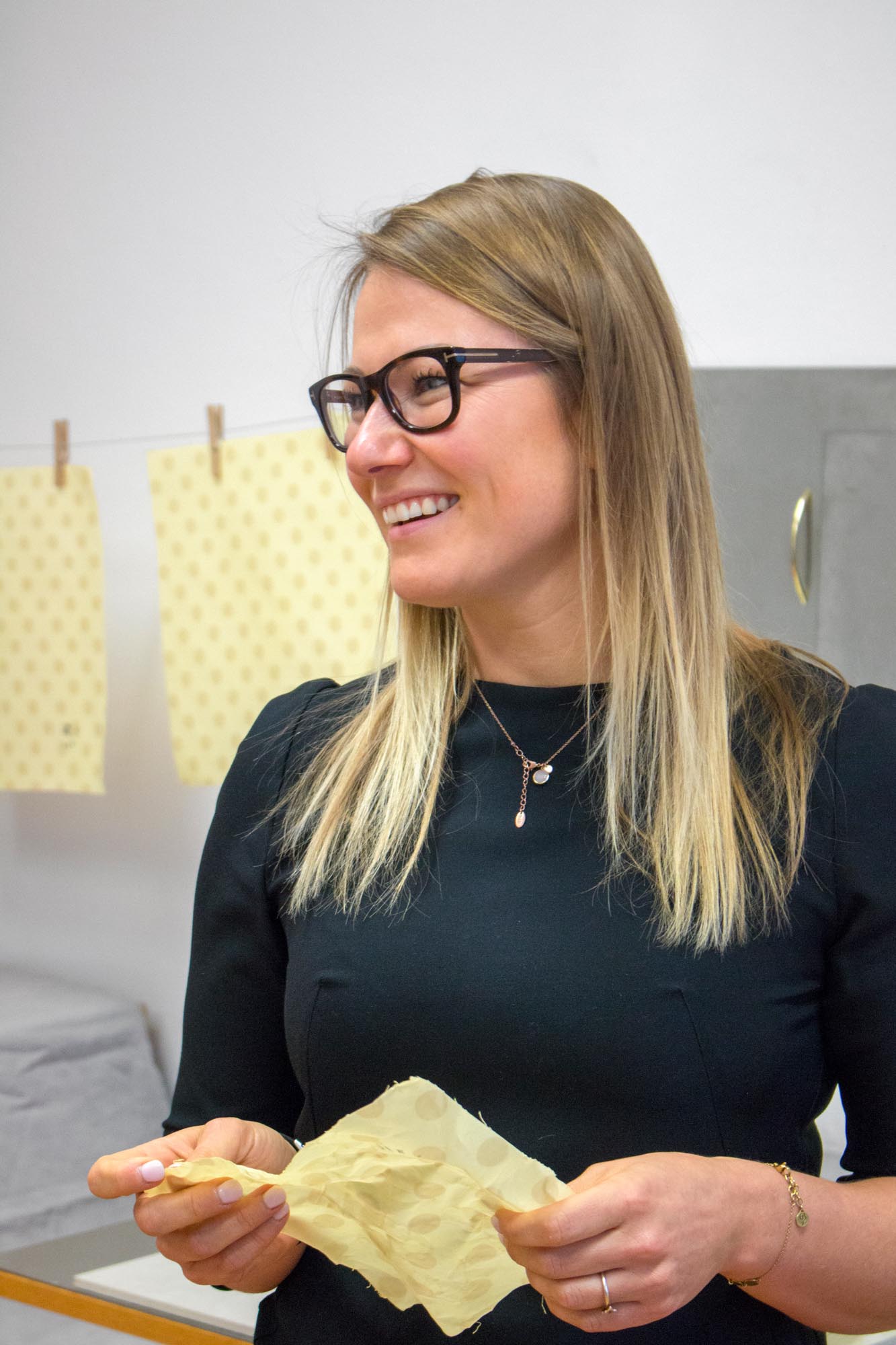
Home is where the hive is
Stemming from a family of beekeepers, Ieva was exposed to the industry from a young age. With over 250 hives, her father is one of the largest beekeepers in Latvia. Her mother runs a specialist store in Riga selling a wide array of bee products, including candles and soaps. A graphic designer by trade, Ieva never envisioned herself following her parents’ footsteps in the bee industry. She explains how the idea for BEE IN came to fruition, “I always had the problem that cheese would get rock hard in my fridge because I didn’t use plastic foils. Sometimes, foods would go off quickly, and I’d end up having to throw them out, so they’d go to waste. I thought we could try to do something with beeswax because it contains propolis, so we started infusing cotton with it. For the first one and a half years or so, we were using the wraps at home. Then my friends thought it was cool and wanted me to make them some for Christmas. People started asking questions and paying attention to the wraps, so it seemed like it could be a good business idea. I suggested that my mom make them for her store, but she didn’t want to bother with the production process and urged me to give it a try.”
At the time, however, Ieva was still employed full-time as a designer. Nevertheless, she thought it was worth a shot if she could find the necessary funding. Several months later, the University of Latvia’s Business Incubator would prove to be her golden ticket. The start-up accelerator programme was providing young entrepreneurs with access to education, resources, mentorship and financial support to help kick-start their business ideas—exactly what she needed to get the ball rolling. BEE IN made the cut, and her buzzing business began to take shape.
From day one, Ieva poured her heart and soul into making the most of the Business Incubator’s support framework over a two-year period. She enrolled in every lecture they offered, experimented with numerous sales and marketing channels, held presentations, spoke to the press and most importantly, took every failure as an opportunity to learn—you name it, she went for it. But, by the time her year with the Business Incubator came to an end, exhaustion got the better of her. Ieva finally quit her job as a graphic designer and took two months off to travel around Asia. Her aim was to recharge her batteries, so she could return home to focus all her efforts on building BEE IN. Little did she know, her trip would be overshadowed by a rather serious tropical infection in her leg, which would leave her hospitalized and reliant on care and crutches for months to come. During this difficult time, friends and family provided her with the support she needed to keep the business afloat—helping hands she is deeply grateful for to this day.
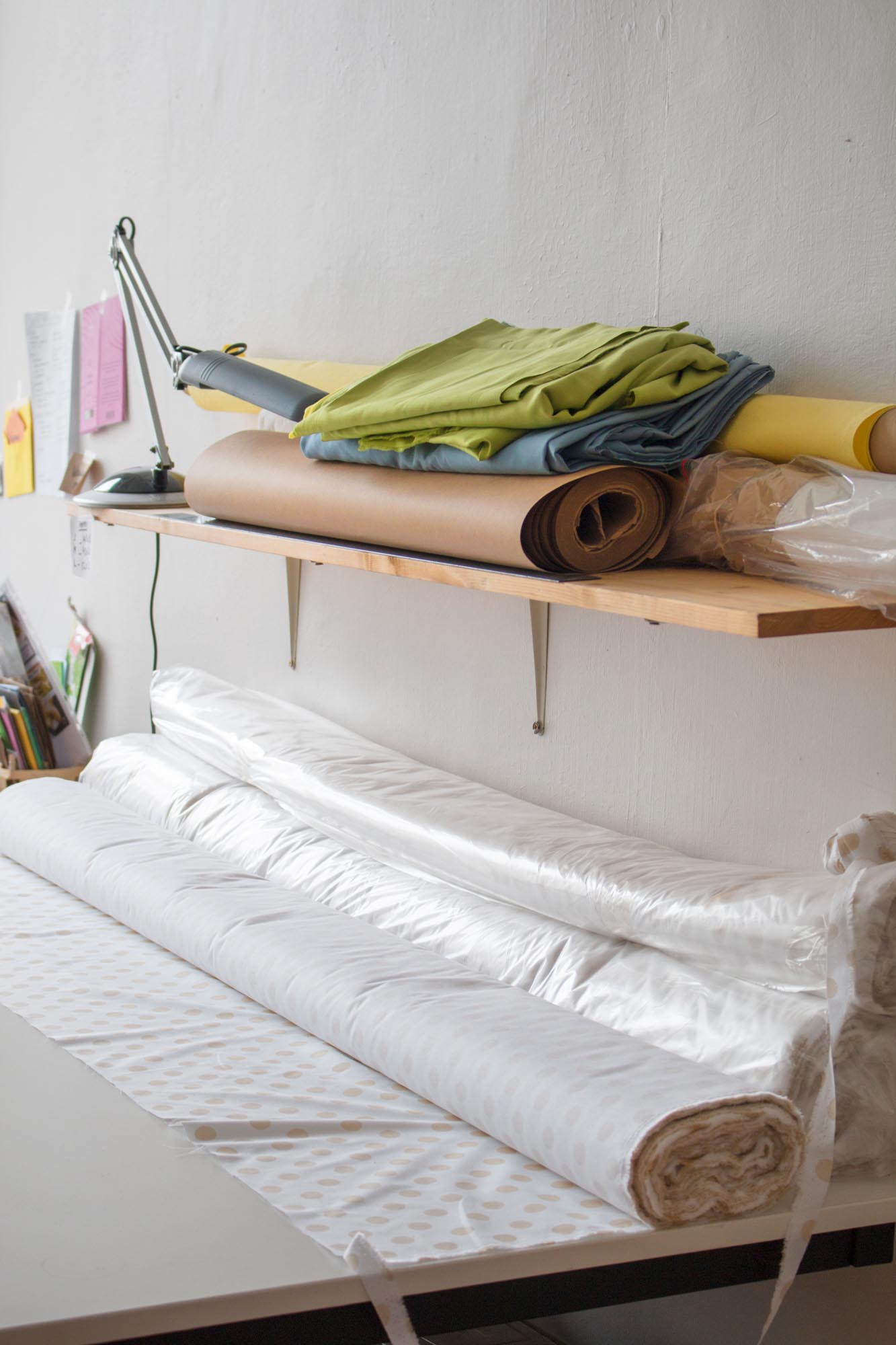

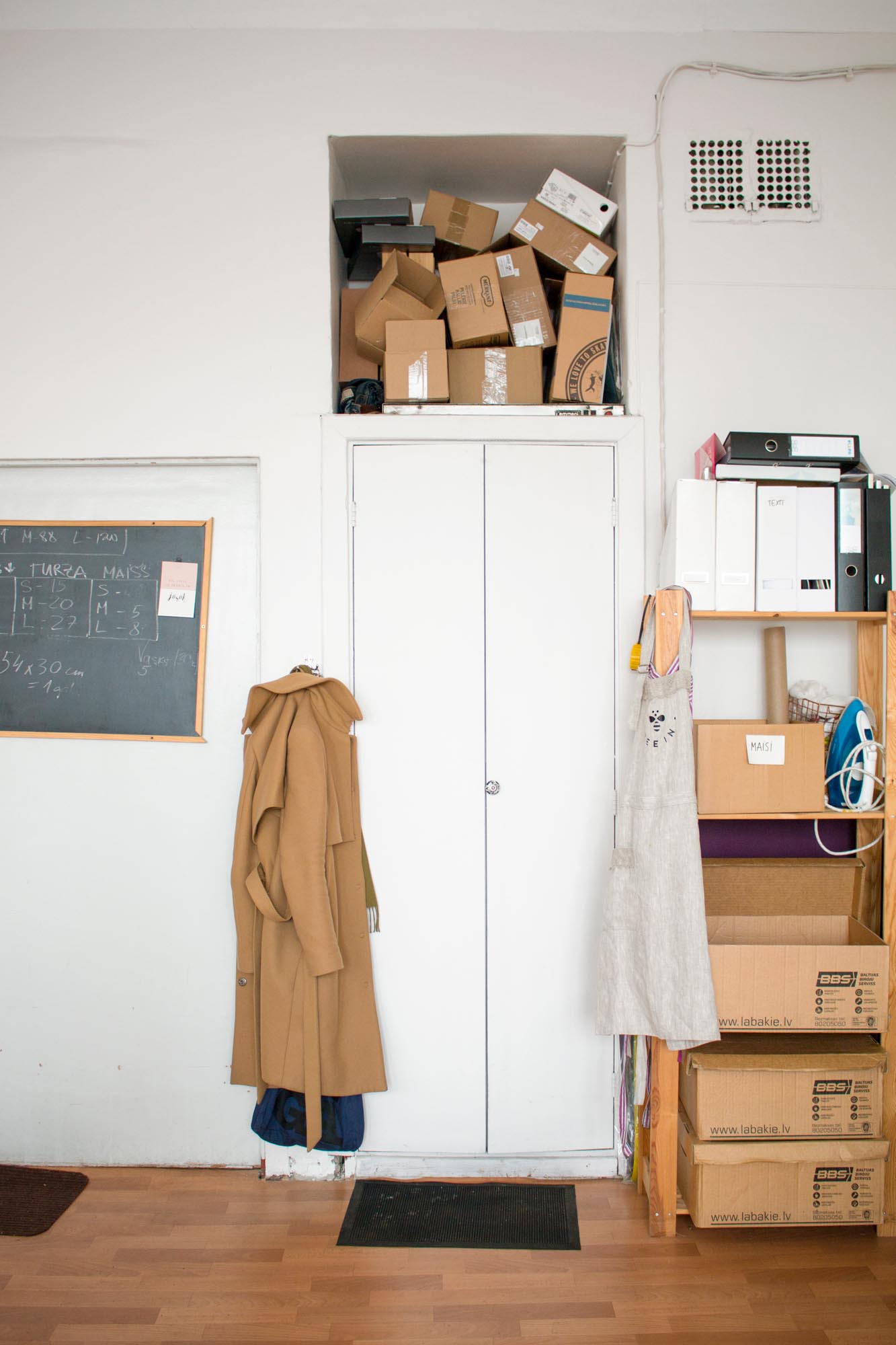
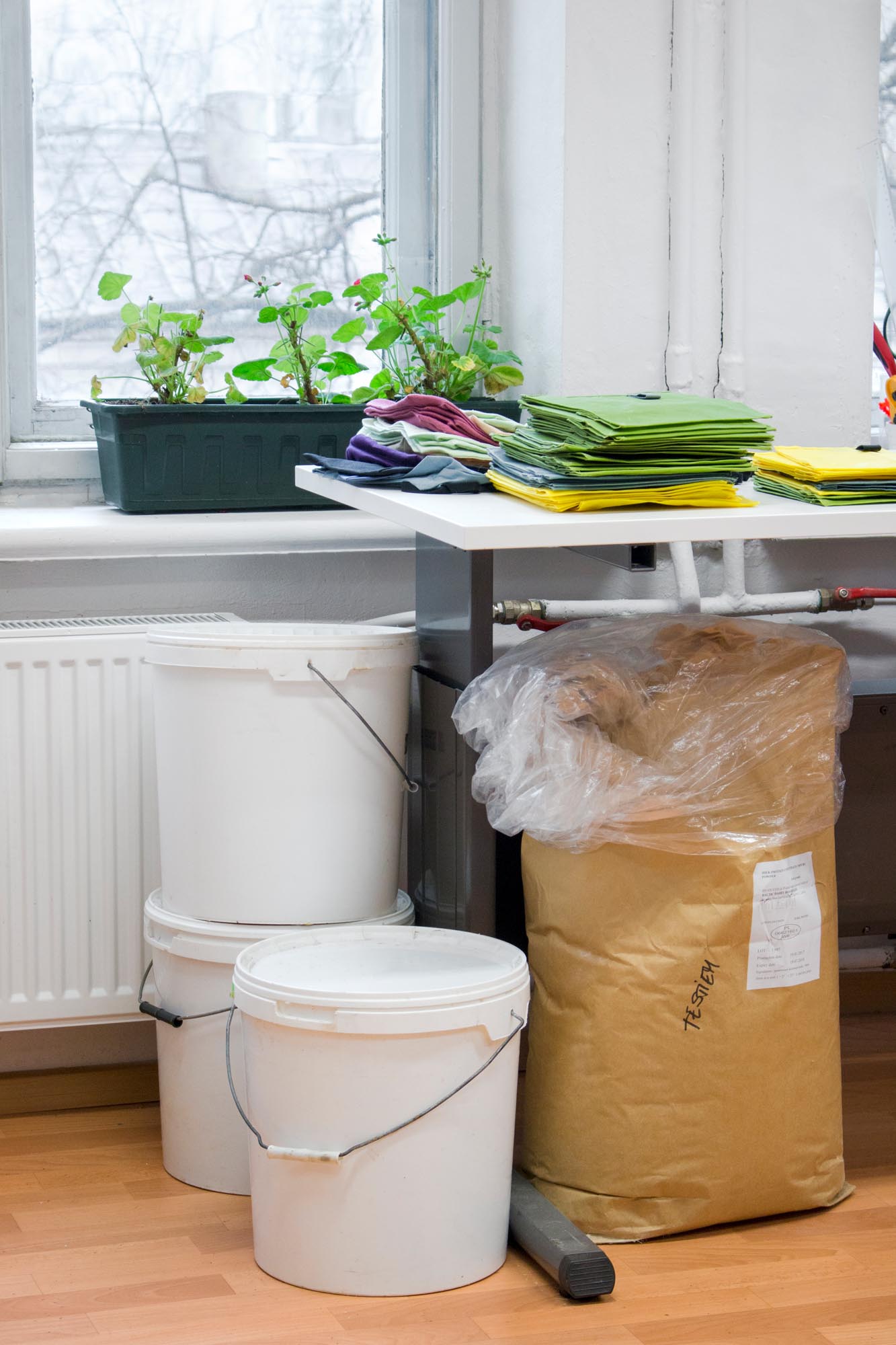
Learning to teach, teaching to learn
Communication remains one of the biggest challenges Ieva faces in marketing BEE IN’s seemingly simple line of products. Ieva recalls her first experience at hard-selling her first batch of wraps, “Through the Business Incubator, we had an innovation stand in a supermarket in Riga. We had two whole days to present our product to the people, and they were not excited. In those two days, I think we only sold 18 wraps. We had worked two-night shifts in a row to prepare for this day because I thought everybody was going to buy it. I realised that it’s not as easy as selling a table or chair because people don’t know what it is or what you should do with it. It was then that I understood that this product was going to need much more, you cannot just display it in a shop. If we have it in stores, it needs to be explained to shoppers by the people who are working there.”
Ieva went on to spend an entire summer travelling around Europe, personally introducing her product to a series of potential business partners in various countries. At markets, she attentively chats to curious passers-by, happy to elaborate on the benefits of and demonstrate her wraps’ use to anyone who is intrigued. Thanks to her efforts of actively building a network of open communication and trust, she is frequently contacted by existing customers who want to know more so they can fully grasp the concept and help spread the word.
Despite Ieva’s initial predictions about her target audience and subsequent customer base, it turns out not just “eco-moms” are looking for alternative solutions to Tupperware toxins, food waste and plastic pollution. Today, BEE IN’s ever-growing clientele spans a wide demographic, “I think, with increased governmental regulations and all the information we’re seeing in the media, people everywhere are starting to think more about what they are consuming. They are bringing their own bottles, trying to sort their trash, trying to do something. If you talk to anyone about the classic dry cheese problem, the plastic packaging, or food they’re throwing out, everyone’s quick to see your point.”
But Ieva’s efforts by no means stop at reaching out to adults, “We’ve started doing these masterclasses with kids. Children are so interested in doing things by hand, so I’m helping them make their own wraps. They’re writing on them, drawing on them and just generally having a lot of fun with them. I tell them about the bees and why they’re so important to everything around us—how they pollinate the flowers, trees and crops—the kids are always asking questions. Education starts with children. They bring what they’ve learned home to their parents who in turn listen to them.” Every changemaker has their own unique way of planting seeds. Ieva was eager to point out that the key to behaviour is that it’s learned from a young age. She considers it crucial to her cause that she dedicate time and resources in introducing the next generation to ways of fostering healthy relationships with our planet.

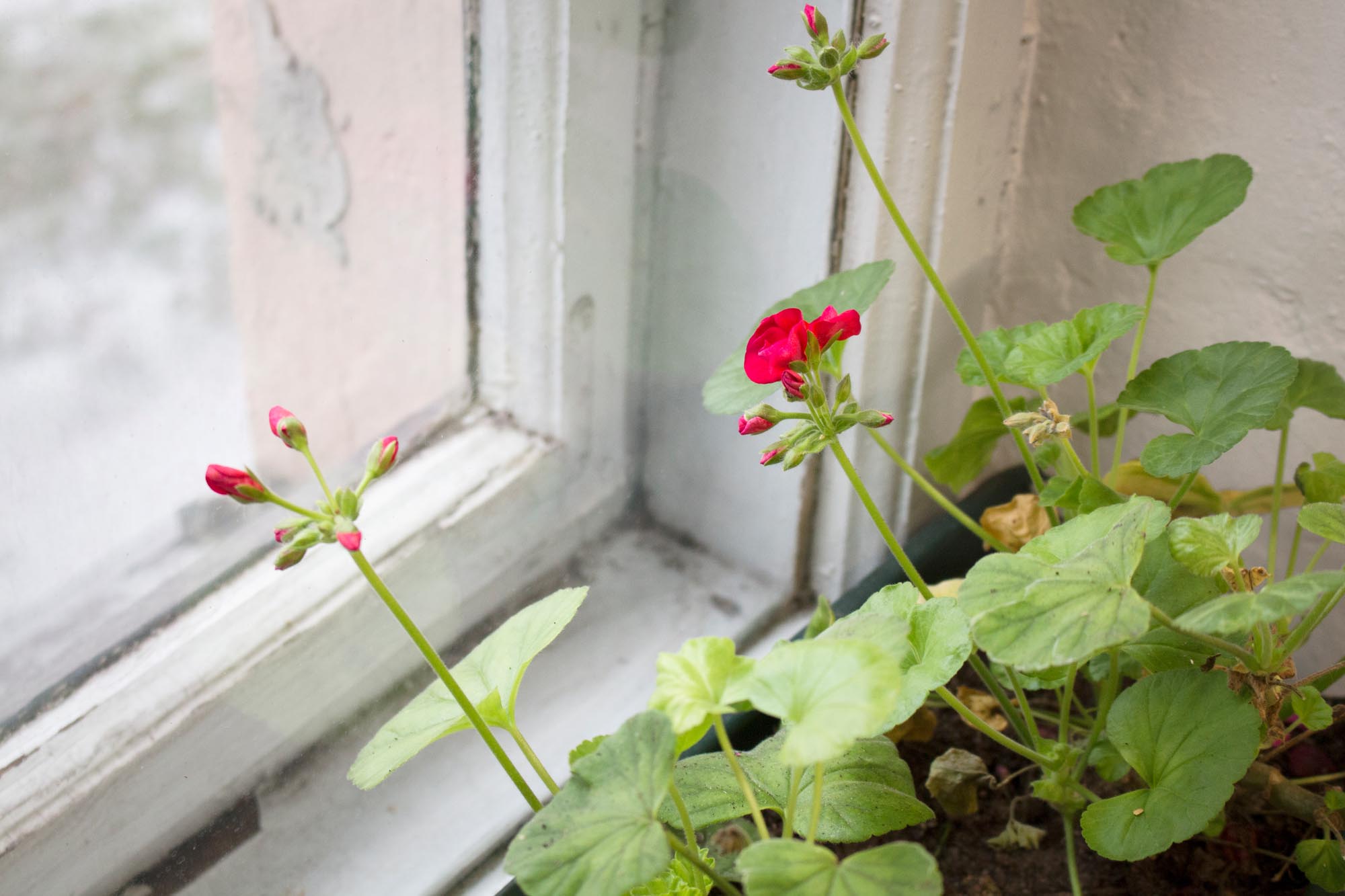
Going for growth
Ieva’s long-term vision is to see her products in every household in Europe. And with the media abuzz with the EU’s recent announcement of its 2021 ban on single-use plastics, the prospects for businesses that advocate a more Earth-friendly future are looking bright. In addition to sales from its online store, BEE IN is currently available on shelves in Latvia, Denmark, Sweden, Estonia, Finland, Belgium, Germany, the UK and Spain. Ieva elaborates, “One-and-a-half years ago I spent a summer going to all these different countries, walking into markets and stores, telling people about my product and leaving them samples. It was especially difficult in Spain where people didn’t speak English. This year, Laura Lizuma, a Latvian woman living in San Sebastian, contacted me out of the blue. She told me that she loves my idea and asked if she could become BEE IN ambassador in Spain. Of course I said yes! Since then, she’s already managed to get us an offer from one of the stores I had been to a while back. Thanks to her work, our products are now available in zero waste stores in Barcelona and Valencia, so it shows what a difference it makes if someone who speaks the language goes there.” Likewise, Ieva’s sister is currently acting as BEE IN ambassador to stores in the UK. This model seems to be working quite well, and she is intent on finding more individuals to team up with in other parts of Europe down the road.In 2019, Ieva plans to expand her product range to include bigger sizes. In doing so, she hopes to increase the versatility of her products and appeal to an even wider audience. For the new year, she is particularly excited about a partnership with a Spanish bakery. And why she shouldn’t be? From helping to store large quantities of ingredients to keeping loaves of bread astonishingly fresh, testimonials from partners such as these are perhaps one of the most steadfast and honest ways to grab the attention of new customers. One of Ieva’s biggest obstacles remains the lengthy production process of her products, which is currently limited to around 18 individual wraps per hour Nevertheless, she is happy to keep tinkering with ideas in her small studio and feels confident that she will find a scalable solution along the way.
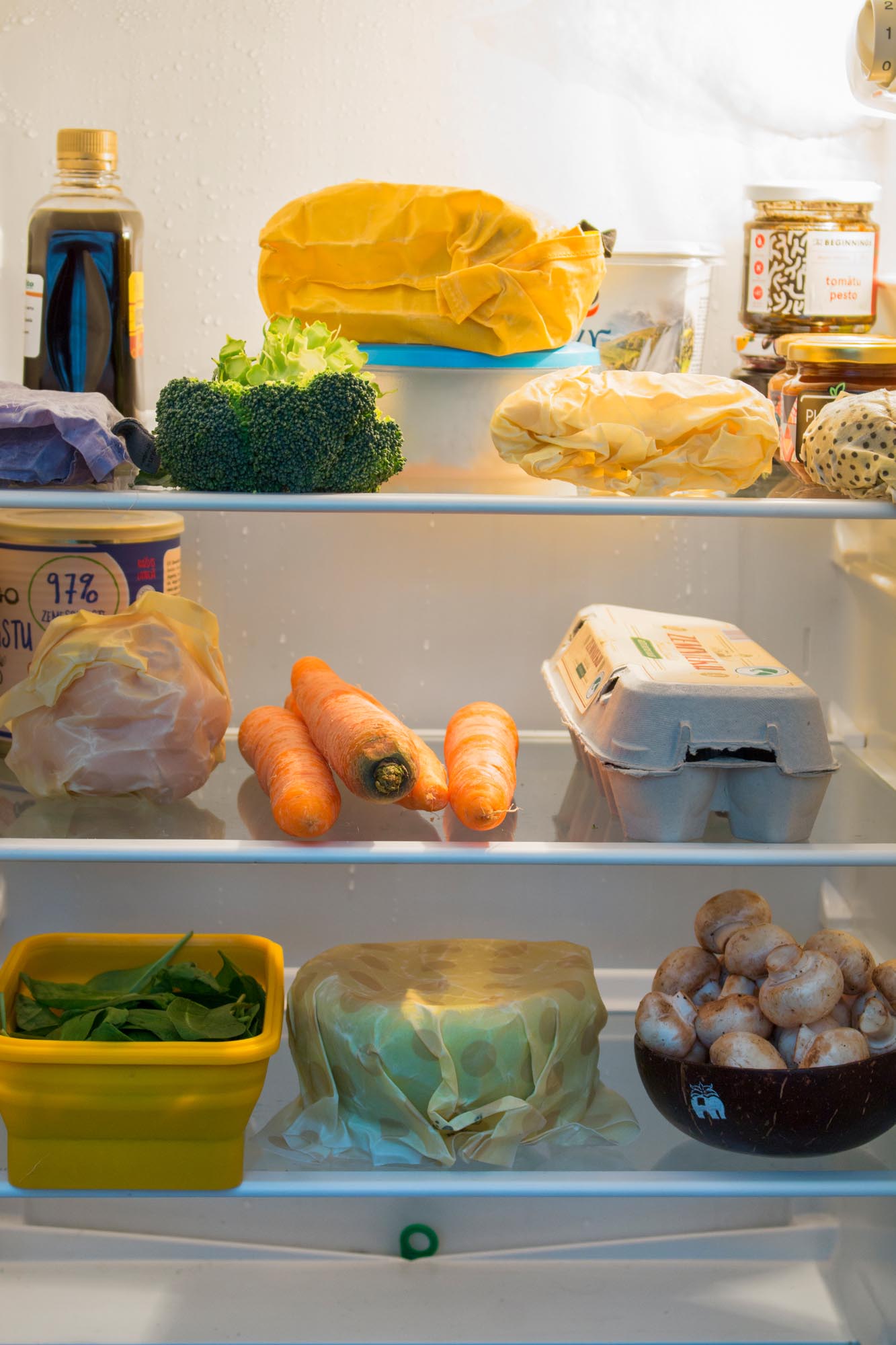
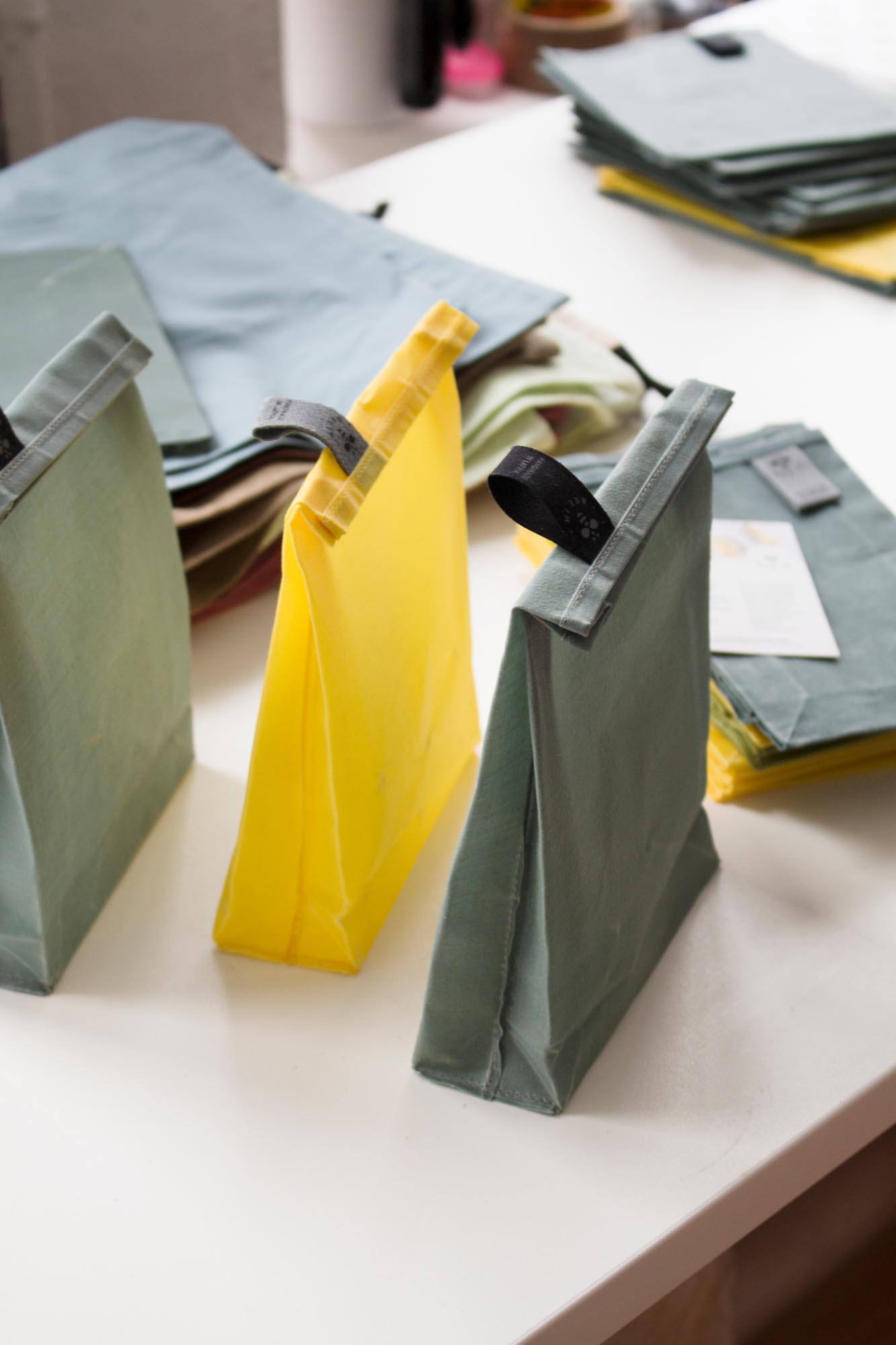
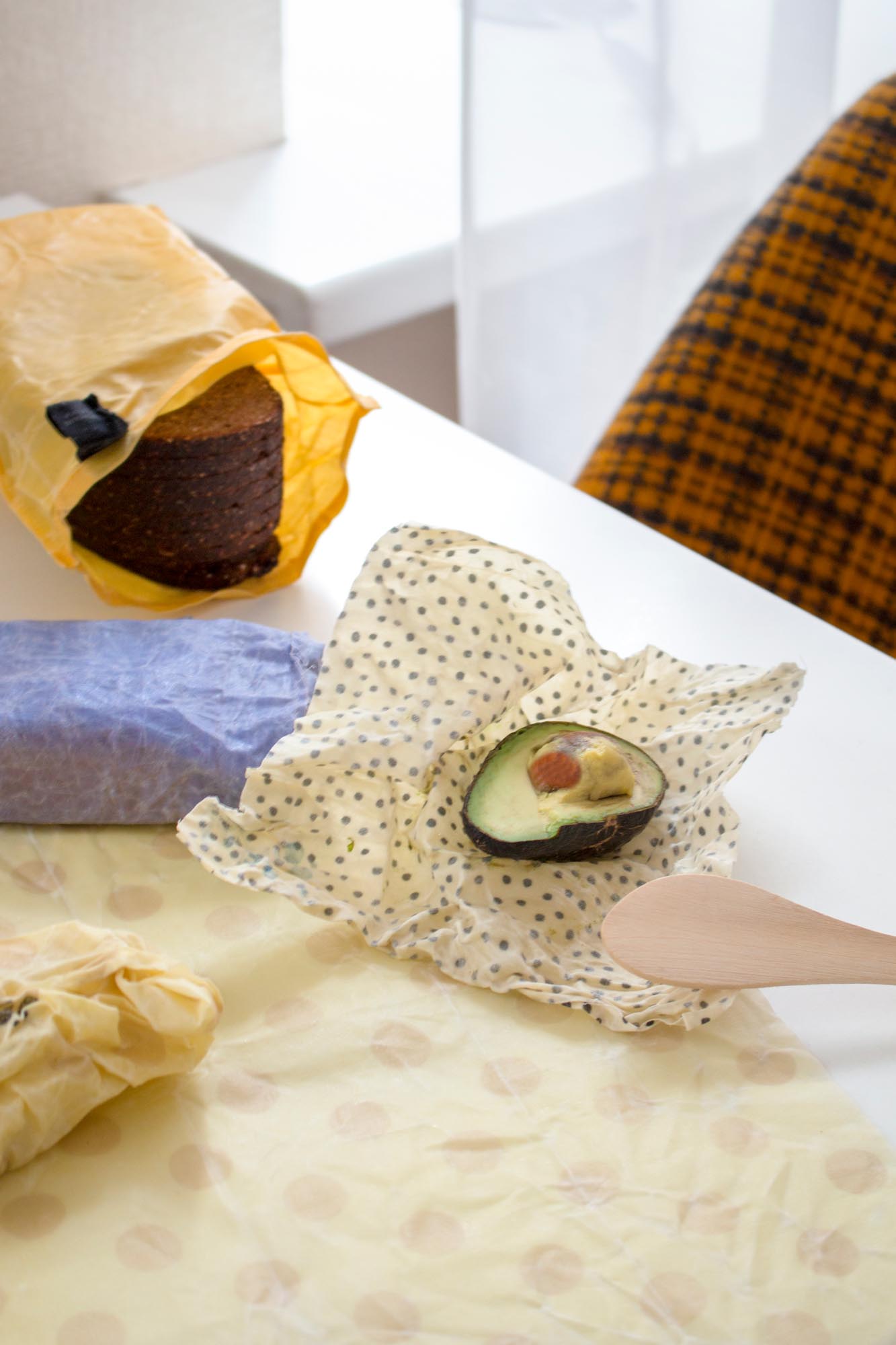
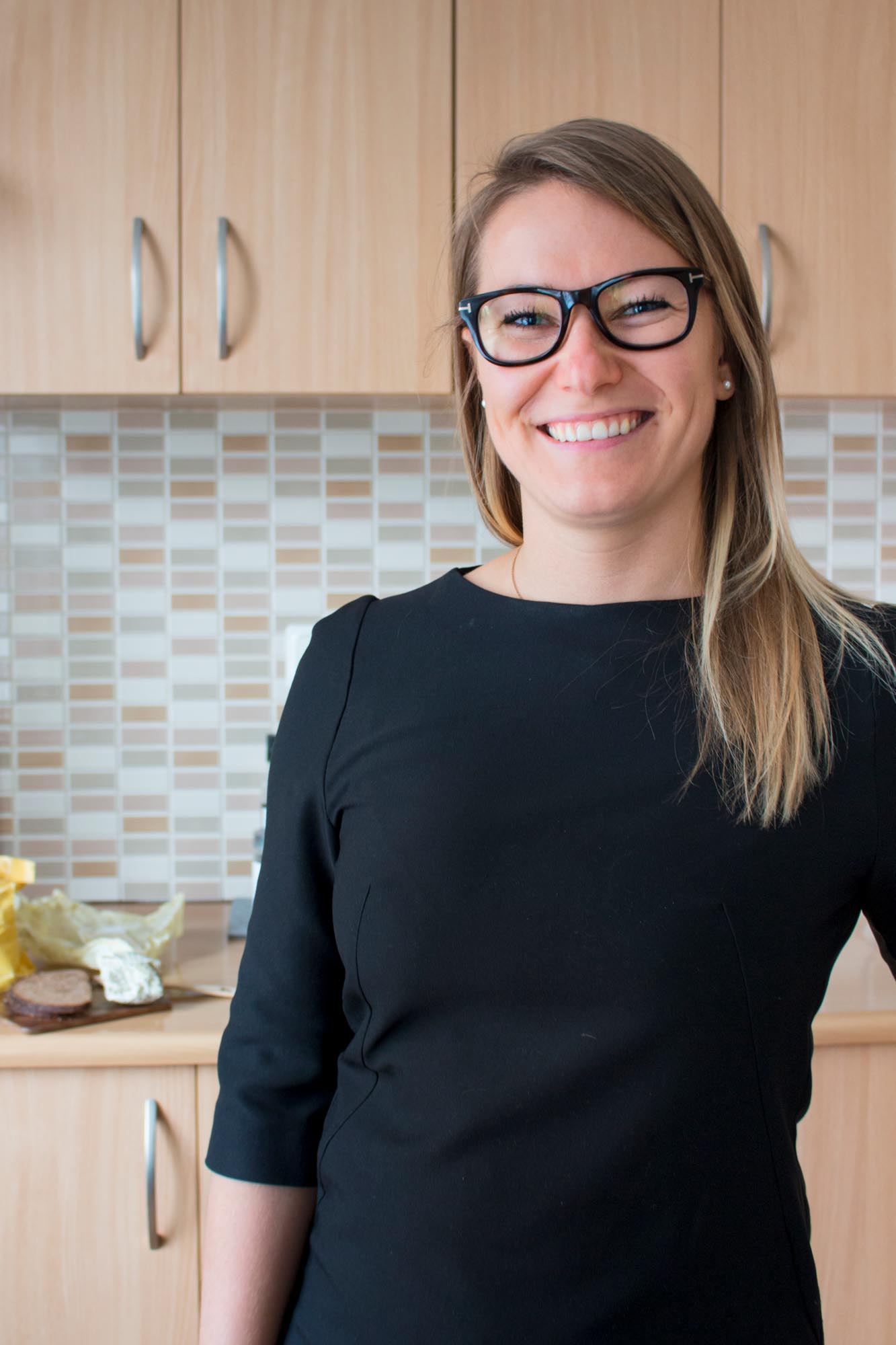
Head over to beeinwrap.com to keep your food fresh and your fridge plastic-free!
Images: Sabīne Zoltnere
Text: Maia Frazier
Edit: Sonya Frazier